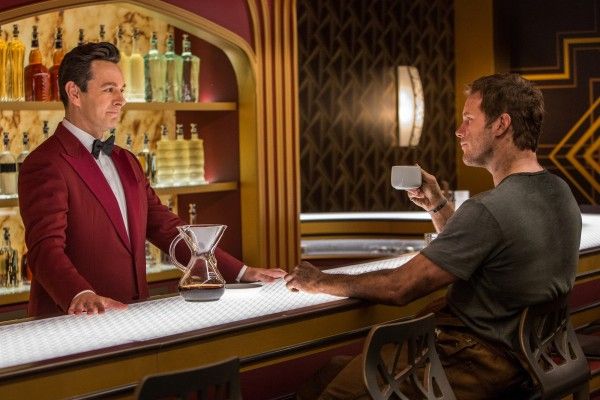

In fact, later, Jim easily gets into what should probably be the most secure area of the ship: the reactor that powers it. And yet, why does screenwriter Jon Spaihts ( Doctor Strange, Prometheus) put such a barrier in Jim’s way? Why is Jim able to access the maintenance and storage areas of the ship (where he finds all the tools), which shouldn’t be open to a passenger or easily broken in to, yet not the crew area? If it has never occurred to anyone involved in this entire endeavor that passengers could accidentally wake up early - you know, before the crew wakes up - what is the purpose of securing the crew’s hibernation area this way? This isn’t like, say, securing the cockpit door on an airliner: the crew’s hibernation pods are not on the bridge or, seemingly, in any other sensitive command area. Jim is a mechanic, so we can presume that he makes all reasonable effort to get into the crew area. Now, why her? Why doesn’t Jim wake up, say, a member of the crew, who must surely have some fix for this problem? He does try… but while the passengers’ hibernation capsules are out in the open, the crew’s are in highly secure chambers, which Jim tries his damnedest to get into, using all the tools he can find (sledgehammers, blowtorches, electronic doodads to bypass the security, etc). Just so this is clear: Lawrence’s character does not accidentally wake up as the result of a computer glitch or any other shipboard malfunction. So there will be two people all alone on a spaceship in deepest interstellar space, cut off from the rest of humanity - there isn’t even any meaningful communication with Earth - for the rest of their lives. (This is one of those twisted contrivances hibernation technology doesn’t exist, so the details of it can be whatever the writer wants it to be.) So, after being alone for a year and having found no solution for his problem, he wakes up Jennifer Lawrence ( X-Men: Apocalypse, Joy), so he can have some company.

So Jim is alone on a spaceship meant to comfortably house more than five thousand people once they are awakened for the final few months of their voyage, and he is destined to be alone until he dies, or for 90 years, whichever comes first.


This isn’t supposed to happen, it has supposedly never happened before, and there are apparently no safety fallbacks for if such a thing did happen. The “twist” in Passengers is revealed toward the end of this paragraph: The Chris Pratt ( The Magnificent Seven, Jurassic World) character, who is called Jim, is accidentally awakened from hibernation on the colony starship Avalon thanks to a computer glitch. This is your last warning: look away now if you do not want to know pretty much everything of importance that happens in Passengers. But even the movie’s other flaws all serve the fundamental problem with Passengers, which is that after offering a few quick nods to the profoundly unethical act at its core, it dismisses all objections to it, shrugs it off, and turns it into a fairy tale.Īnd it’s all even worse than it sounds when you delve into the details. There are other issues with the film, such as the contrivances of its science-fictional concepts, which really are contrivances: when you’re inventing the science your story runs on, its quirks are not accidents but deliberate acts to twist the story in a way that need not automatically be (as would not be the case if, say, your story featured actual existing technology). It is a crime of the worst kind, committed with malice aforethought.
Passengers by jon spaihts pdf movie#
The movie tries to frame it as a conundrum, but it is nothing of the sort: it is an instance of willful cruelty that is given great consideration before it is undertaken anyway. First, a spoiler-free nutshell: At the heart of this story is an act of wanton moral depravity.


 0 kommentar(er)
0 kommentar(er)
